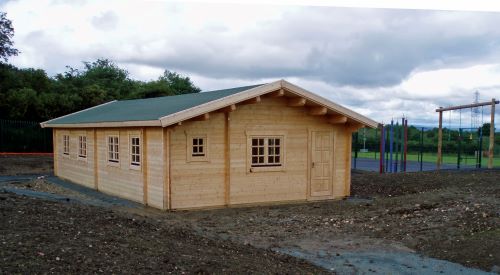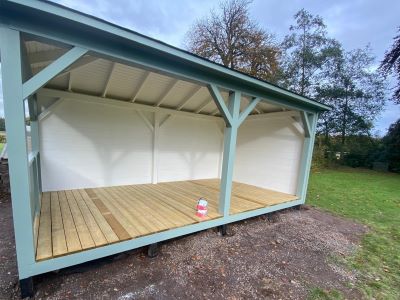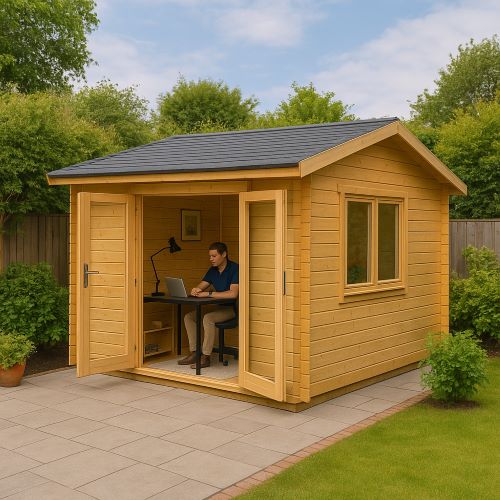Outdoor learning has recently gained significant attention as an essential part of the educational experience. Particularly in the UK, the Office for Standards in Education, Children's Services and Skills (Ofsted) has reinforced the value of an outdoor classroom in enhancing children's development. This blog post will delve into what Ofsted says about outdoor learning, emphasising its benefits, recommendations, and overall impact on educational practices.
The Importance of Outdoor Learning
Ofsted views outdoor learning as a vital component of a child's education. Their reports highlight how learning outside the traditional classroom environment can foster children's overall development. Outdoor classrooms allow children to explore their surroundings, engage with nature, and develop various skills ranging from social interaction to problem-solving.
Outdoor learning encourages active participation and offers hands-on experiences that can significantly complement theoretical education. According to Ofsted, activities outside the conventional classroom can improve motivation and increase student engagement. This, in turn, can lead to improved academic performance, making outdoor learning an influential aspect of the curriculum.
Ofsted's Findings on Outdoor Classroom Settings
In various inspections, Ofsted has observed numerous benefits from outdoor learning environments. Their findings show that schools implementing outdoor classrooms have reported many improvements, particularly in student behaviour and emotional well-being. For instance:
- Social Skills Development: Outdoor efforts often involve collaborative projects and team-building exercises, encouraging children to communicate and work together, thus honing their social skills.
- Enhanced Physical Health: Regularly engaging in outdoor activities contributes to better physical health among children. According to Ofsted, outdoor learning can better fulfil the physical education guidelines, as it promotes active lifestyles.
- Emotional Resilience: Being in a natural setting can help reduce students' stress and anxiety levels. Schools with outdoor classrooms often provide a more serene environment conducive to emotional well-being.
Recommendations from Ofsted
Ofsted has made several recommendations regarding the incorporation of outdoor learning in schools. One of the primary suggestions is to ensure that outdoor classrooms are not just an isolated part of the curriculum but integrated into subjects across the board. For instance, science lessons could use an outdoor setting to teach children about ecosystems or plant biology.
Furthermore, Ofsted encourages schools to train their staff to effectively use outdoor spaces for educational purposes. Adequate training can enhance teachers' confidence and skills in harnessing the potential of an outdoor classroom, ultimately benefiting the students.
Ofsted also emphasises the importance of planning learning outcomes when using outdoor classrooms. Teachers are urged to create structured activities with clear objectives so that children can gain relevant knowledge and skills during their outdoor experiences.
The Role of Parents and Community
Ofsted acknowledges that the success of outdoor learning does not solely depend on the school; it also involves parents and the community. Engaging with parents can help provide insights into how they perceive outdoor education and can foster a supportive environment for outdoor learning initiatives.
Community partnerships can also enhance the outdoor classroom experience. Collaborating with local organisations, such as nature reserves or wildlife trusts, can offer extra resources and opportunities for schools to enrich their outdoor learning programmes. Schools can effectively create more engaging and diverse outdoor learning experiences by leveraging community support.
Final Thoughts
Ofsted's findings regarding outdoor learning reaffirm its significance in the educational landscape. An outdoor classroom creates invaluable opportunities to meaningfully engage students and support their cognitive, emotional, and social development. By implementing Ofsted's recommendations, schools can effectively integrate outdoor learning into their curriculum, transforming how students learn and interact with the world around them.
In conclusion, outdoor classrooms offer myriad benefits recognised by Ofsted, making it essential for educators to embrace this approach in their teaching practices. By fostering a rich learning environment that extends beyond traditional classroom walls, we can prepare children for academic success and a lifetime of learning and exploration in the great outdoors.











